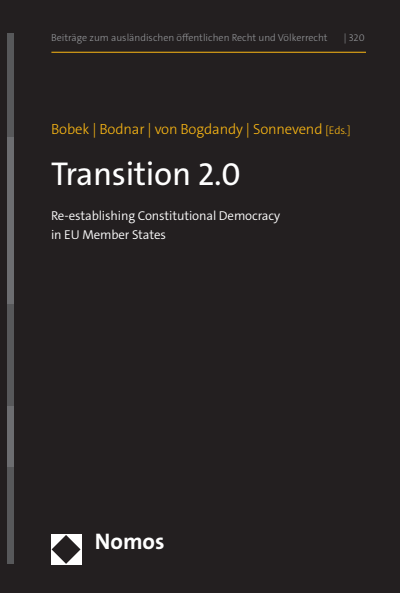EU Values as Constraints and Facilitators in Democratic Transitions
To the book chapter:
EU law plays a twofold role when a Member State decides to return to full constitutional democracy. On the one hand, Article 2 TEU places constraints on such a transition as it requires to respect the principle of legality. This could lead to former government members invoking Article 2 TEU to challenge the country’s transition. On the other hand, EU values can facilitate a transition. Direct effect and primacy entail that public officials who have violated Article 2 TEU might be suspended from office, which helps overcome resistance from captured institutions. Moreover, these doctrines allow the new government and courts to set aside partisan legislation in breach of Article 2 TEU.
To the anthology:
The central question of Transition 2.0 is this: what (and how) may a new government do to re-establish constitutional democracy, as well as repair membership within the European Union, without breaching the European rule of law? This volume demonstrates that EU law and international commitments impose constraints but also offer tools and assistance for facilitating the way back after rule of law and democratic backsliding. The various contributions explore the constitutional, legal, and social framework of ‘Transition 2.0’. With contributions by Matej Avbelj | Michal Bobek | Adam Bodnar | Armin von Bogdandy | Dario Castiglione | Pawel Filipek | Diego García-Sayán | Christophe Hillion | Sara Iglesias Sánchez | András Jakab | Maryhen Jiménez | David Kosař | Zdeněk Kühn | Angelika Nußberger | Jiří Přibáň | Kim Lane Scheppele | Werner Schroeder | Katarína Šipulová | Pál Sonnevend | Luke Dimitrios Spieker | Maciej Taborowski | Mirosław Wyrzykowski


